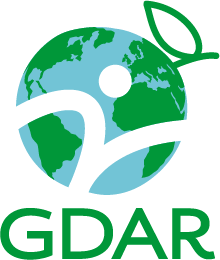Mapping the policy environments relevant to the determinants of NCDs
This research is exploring the current policy environment at a global, regional and country level, for the reduction of sugar and salt intake, as well as the promotion of physical activity.
The work will provide insight into the extent to which the prevailing multi-level policy environment is conducive to taking action in the mitigation of NCDs, and in particular with respect to dietary intake and physical activity. A particular focus is made on how the global policy environment articulates with that of low-and-middle income countries, given the escalation of the NCD epidemic in these contexts in recent years.
This work is being led by RICHE (University of Cape Town), working closely with Jamaica and Cambridge partners in conceptual discussions and in Global and regional PA policy analysis, with contributions from all Partners
University of Cape Town, South Africa is lead institution and responsible for global and regional level work and supported by Jamaica. Researchers in each of three countries (SA, Cameroon and Kenya) involved in country level analysis.
Research objectives
Our principal research question is:
What are the policy factors that shape the prospects for promoting reduced sugar and salt intake and physical activity (as part of healthy placemaking) towards reduction of NCDs in Africa and the Caribbean?
Subsidiary questions include:
- What are the current policies and their characteristics at the global regional, national and local level?
- Who are the key actors in these policy contexts?
- How are different government sectors engaged in efforts to achieve these outcomes?
- How are gender and children/adolescence lenses reflected and integrated in these policy imperatives at all levels?
Methods
The principal study components are:
- Global and regional policy level analysis of intersectoral diet and physical activity policies
- Individual country level policy analysis in South Africa, Kenya and Cameroon
- Cross-country policy analysis across SA, Kenya and Cameroon
People
Research lead / key contact: Maylene Shung King (UCT, South Africa)
Study team
- Felix Assah (University of Yaounde, Cameroon)
- Jean Claude Mbanya (University of Yaounde, Cameroon)
- Clarisse Mapa (University of Yaounde, Cameroon)
- Vincent Were (KEMRI, Kenya)
- Ishtar Govia (UWI, Jamaica)
- Alafia Samuels (UWI, Jamaica)
- Stephanie Whiteman (UWI, Jamaica)
- Nicole McCreedy (UCT, South Africa)
- Trish Muzenda (UCT, South Africa)
- Amy Weiman (UCT, South Africa)
- Anna Brugulat (Cambridge, UK)
- Lou Foley (Cambridge, UK)
- Ebele Mogo (Cambridge, UK)
- Tolu Oni (Cambridge, UK)
- Lambed Tatah (Cambridge, UK)
